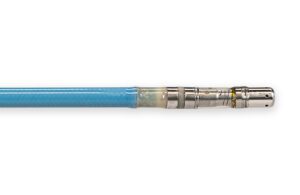Two J&J MedTech leaders shared advice to help medical device developers use real-world evidence (RWE) in FDA submissions.

For the first time, the federal medical device safety regulator approved a label expansion based on RWE from a retrospective study of health records documenting off-label use by physicians.
“The clinical evidence used to support the expansion of indications was based solely on an analysis of a dataset comprised of electronic health records from two hospital systems,” the agency said. “The FDA worked closely with the study sponsor to ensure that the RWE resulting from the analysis was both relevant and reliable.”

The study was a test case for the National Evaluation System for Health Technology (NEST), which coordinated the FDA and J&J MedTech project to evaluate the use of RWE in regulatory decisions.
J&J MedTech won approval of one expanded indication after a six-month FDA review period, though this included a stop in the review clock for Mercy Health and Mayo Clinic, the research partners in the study, to reanalyze their data to address FDA’s additional data requests. It would normally take nine to 12 months for a traditional premarket approval (PMA) process, including investigational device exemption (IDE) review.
J&J MedTech’s Biosense Webster ThermoCool SmartTouch ablation catheter was already approved for paroxysmal atrial fibrillation (AFib), but cardiologists were also using the device to treat persistent AFib. The J&J MedTech team compared their device against another ablation catheter already approved for persistent AFib — the ThermoCool SmartTouch SF (STSF)— in an analysis of records for 1,450 patients treated with either of the devices at Mayo Clinic and Mercy Health.
RWE also secured expanded indications for both catheters and other devices to be used for ablation to treat AFib without fluoroscopy, sparing patients and physicians from potential X-ray radiation exposure.

Read the whole conversation at Medical Design & Outsourcing.

